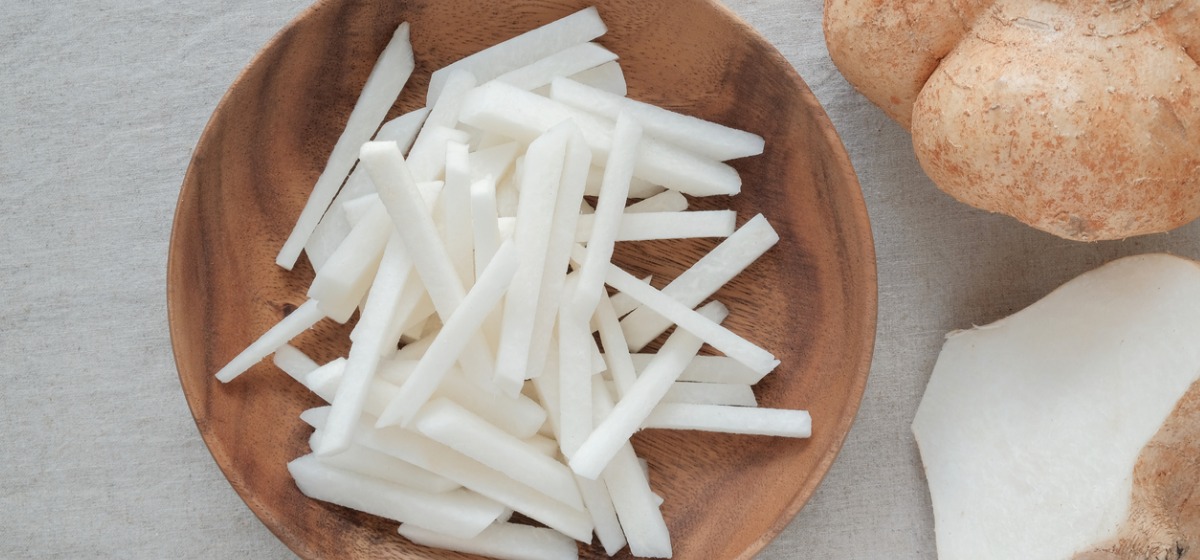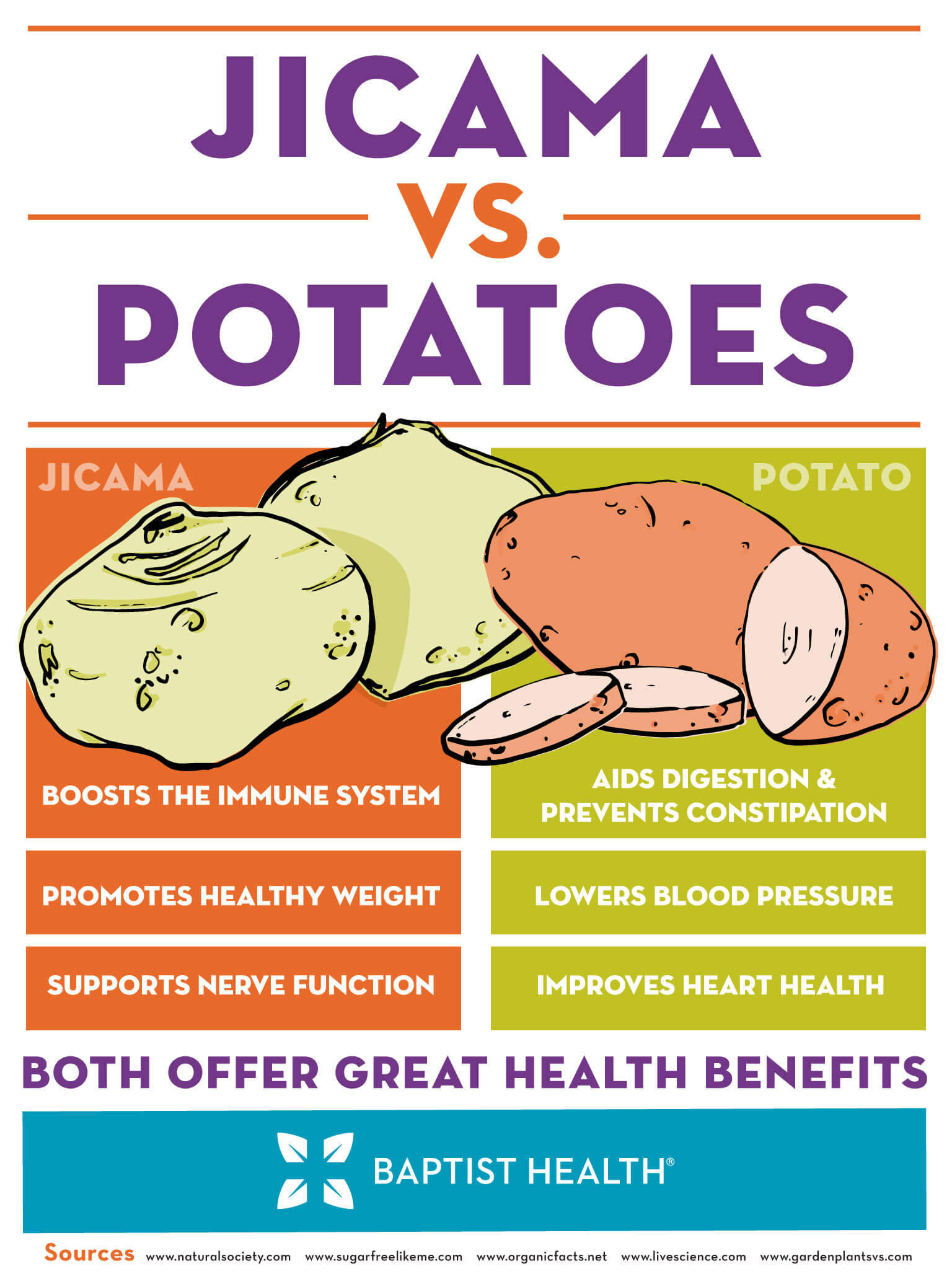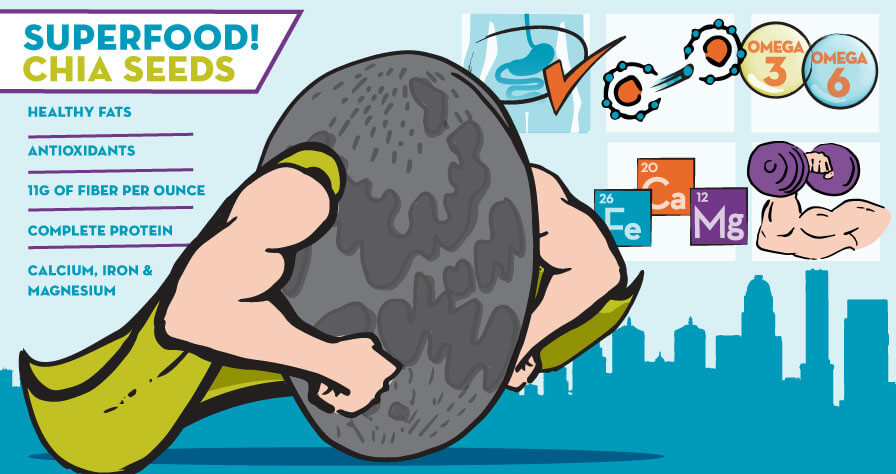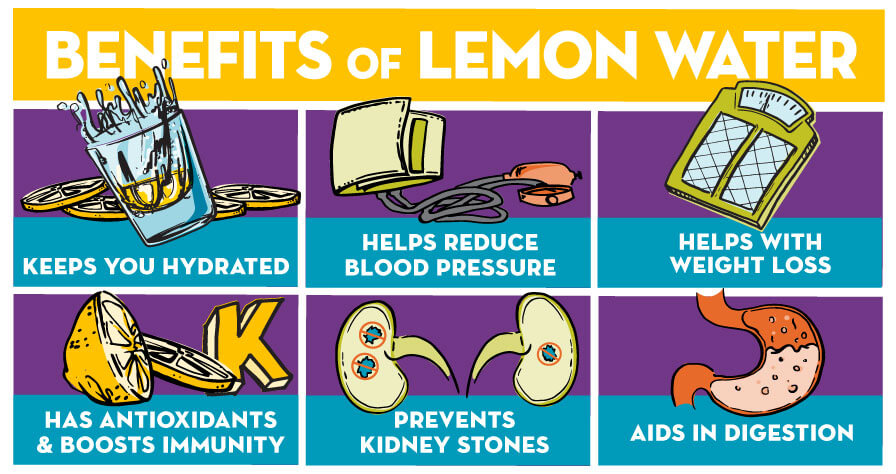Jicama vs. Potatoes Health Benefits

What is Jicama?
Jicama is a root vegetable, like a carrot or beet, and is known as the Mexican yam. Unlike our sweet potatoes in the United States, the skin of jicama isn’t edible. However, they’re both sweet in flavor and crunchy. Jicama can’t be stored in an area that reaches below 50 degrees, so a refrigerator could damage them. The ideal place would be in a heated garage or basement, where they can last for up to two months.
Just like the potato, jicama can be mashed, baked into fries and even eaten raw with a little salt and pepper or any seasoning you’d like. One thing to keep in mind when cooking with this vegetable is that it’ll never get as soft as a potato would. Knowing this, you’ll be less likely to overcook it, as many do, thinking it’ll get softer.
Are There Health Benefits with Jicama?
- This root vegetable, like many of its vegetable counterparts, contains lots of vitamins and minerals. One in particular is vitamin C. With this vitamin, jicama helps to boost the immune system, support eye and skin health and can reduce inflammation in the body (e.g. arthritis and a stuffy nose).
- Jicama promotes healthy weight and weight loss because it has low sodium, low fat and high fiber. Thanks to that high fiber, this vegetable lowers cholesterol, stabilizes blood sugar levels and boosts the digestive system.
- Vitamin B-6, known for supporting brain function, is also found in jicama. Additionally, vitamin B-6 supports nerve function, breaks down protein for energy, helps form red blood cells and synthesizes antibodies to fight harmful viruses and bacteria in our bodies.
What’s the Difference Between Potatoes and Jicama?
Unlike jicama, potatoes are stem vegetables, not root vegetables. This is because the part of the potato plant we eat isn’t the root even though it’s grown underground. And although potatoes have health benefits, they’re somewhat different than what jicama offers. For example, potatoes are high in carbs and low in protein, meaning they can cause weight gain if consumption isn’t monitored. A few potato health benefits are the following:
- Potatoes support the digestive system because of the carbs and fiber they contain. Carbohydrates are easy to digest, assisting in the digestion process. The fiber found in potatoes can stimulate gastric juices in the stomach, which can aid digestion and prevent constipation.
- A reduction in high blood pressure is associated with the consumption of potatoes. Potatoes can lower blood pressure caused by tension and indigestion. Fiber aids in lowering blood pressure by lowering cholesterol and improving insulin levels. But this shouldn’t be used as a solution if high blood pressure is the result of diabetes. The potassium found in this vegetable also helps to reduce blood pressure, as it can widen blood vessels.
- Heart health is another benefit of the fiber, vitamin C and B-6 found in potatoes. Fiber helps to clear cholesterol out of the arteries, while the vitamins work to reduce free radicals, agents that cause molecular damage, in the body. Additionally, B-6’s role is to process the potentially harmful molecule homocysteine into methionine. Too much homocysteine can destroy blood vessels and high levels are linked with an increased risk of heart attack and stroke.
Jicama and potatoes are similar in many ways, but are also quite different. Both offer some of the same great health benefits and have unique benefits of their own. When it comes to picking which one you want, simply look at what each one offers and what benefits you would like to reap.
Please visit Baptist Health to learn more about blood pressure and hypertension.




